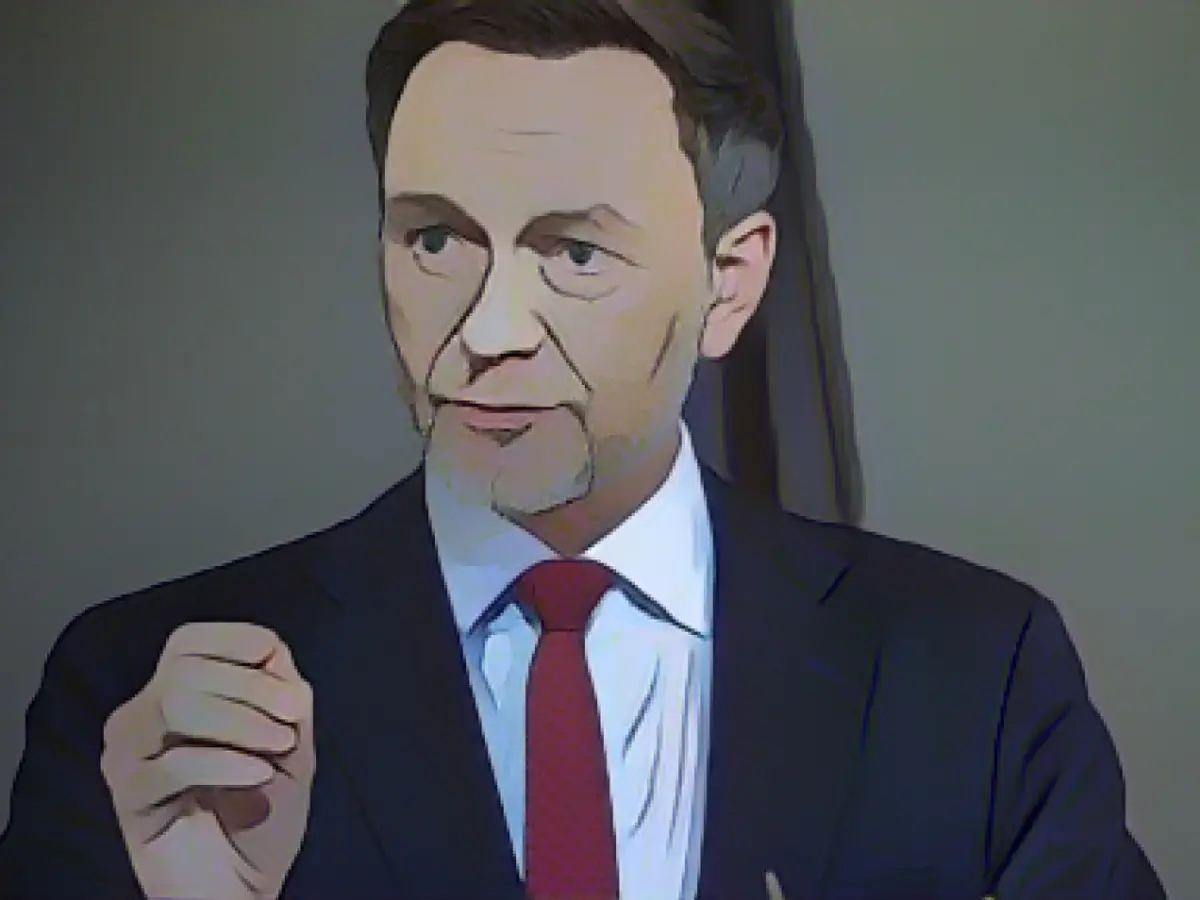Meeting of EU finance ministers - Debt rules: Agreement after Franco-German solution?
Germany and France have agreed on a joint proposal in the debate on the reform of European debt rules. According to the German press agency Deutsche Presse-Agentur, the EU economic heavyweights want to submit this to an extraordinary meeting of EU finance ministers today. This makes a political agreement at the online meeting of all 27 EU countries, which has been scheduled at short notice, more likely.
German Finance Minister Christian Lindner (FDP) unexpectedly traveled to Paris on Tuesday to clarify outstanding points of contention with his French counterpart Bruno Le Maire. According to information from government circles, the proposal now contains more effective safety lines for reducing budget deficits and national debt than before. At the same time, investments and structural reforms of the member states should be better taken into account.
Neighboring countries come closer together
The EU finance ministers have been struggling for months over new regulations for debt reduction. The negotiations are based on a proposal from the European Commission, which envisages individual approaches for each country instead of uniform requirements for debt reduction.
Germany and France entered the negotiations with very different positions. Berlin insisted on uniform requirements for debt and deficit reduction for highly indebted countries - something Paris rejected for a long time. In the end, however, the neighboring countries came closer together.
"Two years ago, the positions were far apart. At the time, there were calls for the familiar criteria of a 3 percent budget deficit and a maximum of 60 percent national debt to be abolished. We have left that behind us together," Finance Minister Christian Lindner (FDP) told the German Press Agency. On the contrary, both criteria have now been expressly confirmed. From a German perspective, it is also crucial that the path to sustainably stable public finances is based on clear numerical targets.
Le Maire wrote on X (formerly Twitter) in the evening of excellent news for Europe, guaranteeing healthy public finances and investment in the future.
Debate between all EU countries
Even before the meeting on Tuesday evening, both ministers had expressed optimism that a joint solution could be found. Lindner said he was confident that a political agreement could be reached with all countries in this case. "We believe that a Franco-German understanding will also allow others to say "Yes, we agree behind this proposal".
The previous exchange between Germany, France and Italy also made him optimistic. Rome had previously signaled that it did not want to accept strict, uniform rules. If an agreement can be reached this year, it is also very likely that the relevant legislation could be finalized before the European Parliament elections. The European elections will take place at the beginning of June 2024.
Rules currently suspended
The current rules stipulate that debt must be limited to a maximum of 60% of economic output and budget deficits must be kept below 3% of gross domestic product. Due to the coronavirus crisis and the consequences of the Russian attack on Ukraine, they have been temporarily suspended until 2024. Until now, countries have normally had to repay five percent of debts above the 60 percent mark each year. A return to the old rules is seen as a threat to Europe's economic recovery. In addition, the rules were often disregarded even before the pandemic - including by Germany.
Criticism of Germany's position
Sebastian Mang from the Brussels-based New Economics Foundation criticized Germany's insistence on strict rules. "Christian Lindner and others continue to place outdated ideology above clear evidence." Green public investment strengthens economies and makes it easier to service public debt. "If we can't agree on this, politicians should consider a new long-term EU investment fund and taxing the richest to finance our essential climate action and key public services."
Isabelle Brachet, Tax Reform Policy Coordinator at Climate Action Network Europe, described the reform as a death sentence for a just transition in Europe. "The compromise focuses exclusively on how quickly and how deeply public debt and deficit must be reduced, and pays no attention to national investments and reforms that serve the EU's climate and environmental goals." The finance ministers are obsessed with old-school economics.
Read also:
- Why there is still no EU funding for green Saar steel
- 3 billion Saar Fund is unconstitutional
- Abrupt end to e-car subsidies
- The chemical industry has little confidence
- The German Press Agency reported that Germany and France, regarded as the EU's economic heavyweights, aim to present their joint proposal on debt rule reform to an emergency meeting of EU finance ministers today.
- The proposal from Germany and France, which was discussed by Finance Minister Christian Lindner (FDP) and his French counterpart Bruno Le Maire in Paris, includes more robust safeguards for decreasing budget deficits and national debt.
- During their meeting in Paris, Lindner and Le Maire agreed to consider investments and structural reforms of member states more effectively in the new debt rule regulations.
- The François-German proposal was born out of months of intense negotiations among EU finance ministers, which were based on a proposal from the European Commission that advocated individual approaches for each country instead of uniform requirements for debt reduction.
- German Minister Lindner noted that, two years ago, the positions of Germany and France on debt and deficit reduction were significantly different, but they have since managed to find common ground.
- Following the agreement between Germany and France, Le Maire expressed his optimism on social media, stating that this was excellent news not just for France, but also for Europe, ensuring healthy public finances and investment in the future.
- In Berlin, Christian Lindner expressed confidence that other EU countries would support the Franco-German proposal, increasing the likelihood of a political agreement at the extraordinary meeting of EU finance ministers.
Source: www.stern.de








